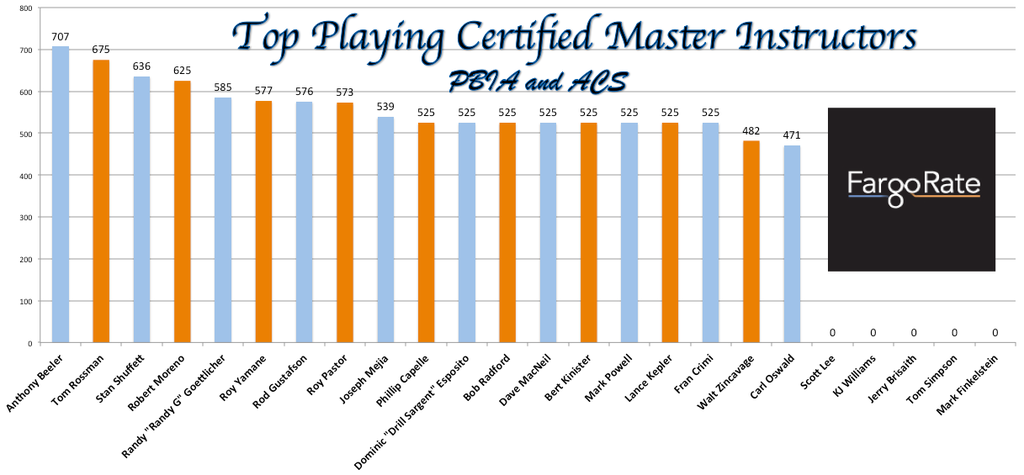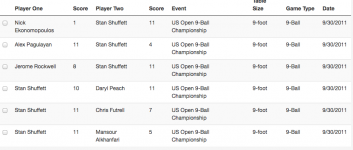...The absolute last thing you should be considering when selecting an instructor is if he/she plays at a very high level. Of all the variables available to choose from when selecting an instructor, limiting your search to only strong players as a requirement is the weakest of factors.
If your reasoning is weak, then it's likely it will reflect in your choices for instruction and perhaps even in your performance.
Here is my take on this subject..The benefits derived from a decent, well qualified instructor, will have as much (or more) to do with the pupil, than the instructor. It will always be on a sliding scale..As the pupils skills escalate, the teachers overall playing skills, must also escalate accordingly!
In other words, a mediocre player, may learn a lot from a well trained teacher/instructor, as far as basic mechanics etc. are concerned..As the pupils skill level increases, so must that of the instructor!..When it reaches a point where the student surpasses the teachers level of play, the less benefit the student can possibly derive..In other words, the bigger the gap, the less helpful knowledge an instructor can possibly impart!
I readily admit, a good, qualified instructor may be able to teach more about the game than a top level pro can, strictly because he will be better at 'teaching' per say!..However, I just cannot see how, (other than spotting a few minor flaws) a teacher can possibly improve a high level players game!..I have also yet to see any of them concur with this line of reasoning!
Lets use Bustamante (or Hopkins) as an example in pool, and Jim Furyk in golf..All have very unique methods of playing their game, at a
very high level!..Even though they employ very awkward looking, and unorthodox methods, no instructor in his right mind, would try to change anything about their game, given the success they have enjoyed with it!
Now if that instructor had won more events (ie; money) than either of them, he may get their attention!..To my knowledge, that has never been the case!..If it were, all the people teaching the game, would be (or would have been) out on tour, getting rich!..Don't get me wrong..Good instructors and coaches, will always be in demand, as they should be..But, believe me, there are very few 'Butch Harmon's' in the world, in
any sport!
PS..It will be interesting to see how Tiger Woods does with his comeback attempt, after his injuries!..He has canned all his coaches, and is going to work on his game all by himself!


